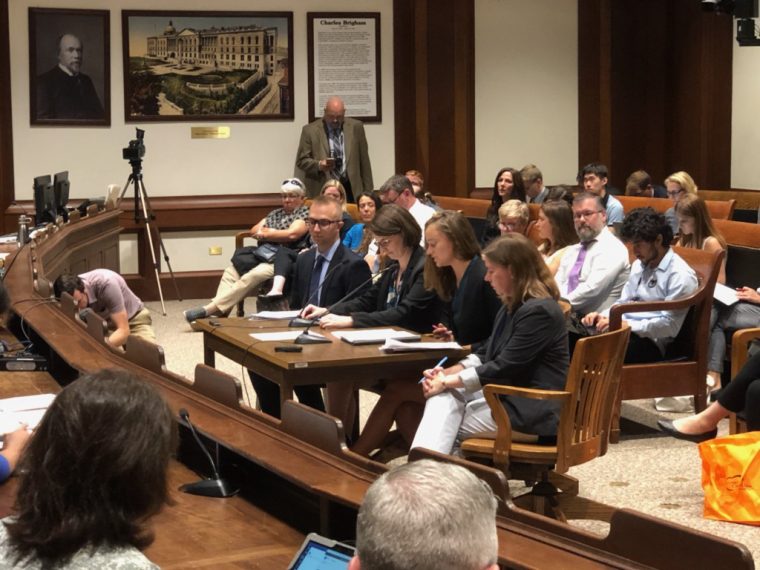
Halting Trafficking in Ivory and Rhino Horn (Massachusetts)
An Act Preventing Trafficking in Ivory and Rhino Horns (S.576/H.903)
Restricts the sale of ivory and rhino horn in Massachusetts.
Status
An Act Preventing Trafficking in Ivory and Rhino Horns (S.576/H.903) would restrict the sale, trade, and distribution of ivory and rhino horn in Massachusetts. Though the federal government enacted a near-total ban on commercial elephant ivory trade three years ago, it doesn’t regulate trade within a state (it only impacts import into the U.S. and trade between states).
Elephants and rhinos killed for their tusks and horns are often chased and then shot with military-grade weapons. Their faces are mutilated to harvest the tusks and horns, sometimes while the animal is still alive.
This legislation would more closely align Massachusetts commerce laws with federal interstate commerce regulations and establish a fund, with penalties assessed under the proposed law, to promote conservation and education. It is sponsored by Senator Jason Lewis (D-5th Middlesex) and Representative Lori Ehrlich (D-8th Essex).
It is supported by Ivory Free Massachusetts, a coalition of animal protection and wildlife conservation groups, including the Animal Legal Defense Fund. Learn more about the bill on the coalition website.
If you live in Massachusetts, take action and urge your state senator to support this bill. The Ivory Bill has been released from its initial committee and referred to the Senate Committee on Ways and Means. Calling your state senator can help keep up the momentum.


